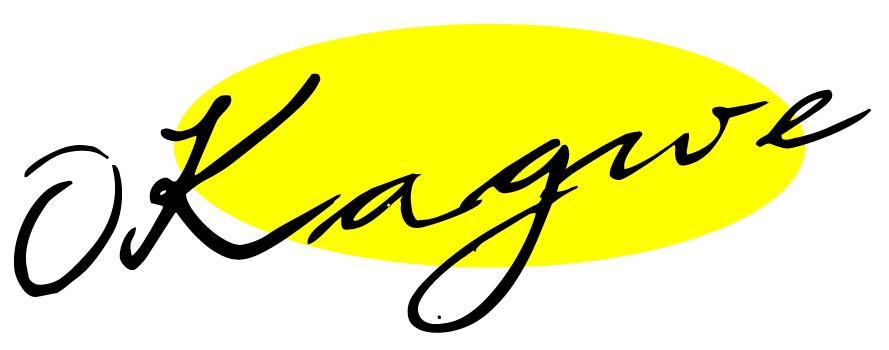Unlike my friends Mike, Polly and Elphic, when I enter anywhere, math gets out. And when math enters, I get out! No hard feelings, just mutual acceptance of ‘it is what it is.’ However, we find amicability when money is involved. For this reason, I don’t suppose I would make a good economist, yet this blog post is about economic policy. There is no doubt our economy is broken. Economists know it, hawkers on the streets can feel it. Who will fix it continues to be the elusive answer.
I am confused by reports claiming that Kenya’s economy is growing. According to the World Bank, ‘Kenya’s economic performance strengthened in 2023 despite continued challenges, with real GDP growth accelerating from 4.8% in 2022 to an estimated 5% in 2023.’ In contrast, when I look around me, startups are closing, staff are being retrenched, it is harder to get jobs, the cost of basic commodities is increasing, electricity costs are high even as we experience more blackouts, the shilling is shrinking to the dollar, aunctioneers are in peak season, buildings are empty and so on. Exactly how does this economy grow? Why don’t we feel it here on the ground?
Perhaps these economists apply optimistic approaches to come to their conclusions. Maybe the economy is really growing. For sure the ‘wash wash’ (money laundering) economy is thiving, apartments are rising, malls are opening, more expensive vehicles are clearing at customs, wads of money are being flashed by politicians and elected representatives, among other indicators. But today is not the day for this conversation, today I want to talk about government austerity.
We Have No Money.
Soon after coming into office in 2022, William Ruto claimed that he inherited a broke and indebted government. No money in the accounts to run government, provide public services and pay public debts. According to Okoa Uchumi, Kenya owes Ksh 11.1 trillion!
In this desperate circumstance, our president in his wisdom increased taxes by signing the Finance Bill 2023, despite public outcry and court rulings. It meant more taxes for those already being taxed and bringing in more people into the tax bracket, effectively reaching even for shopkeepers in the villages. The logic is sensible.
Then came 2024. His team drafted the Finance Bill 2024 which proposed imposing even more taxes to the already well taxed public. Kenyans were having none of it. They said “like hell you will!!” They took to the streets and fervently demonstrated against it. Even though it passed in Parliament, the President declined to sign it when it landed on his desk.
Living Within Our Means.
When I heard Mr Ruto saying “we have to live within our means,” I understood that he meant austerity. I imagined we would cut down on unnecessary spending in order to save. But he took the opposite turn – increasing taxes to fund spending (a lot of it for that mattter). His expenditure includes Billions allocated to illegal offices such as Office of the Prime Cabinet (an invention of his that essentially means Kenya has two deputy presidents), Office of the Spouse of the Prime Cabinet and Office of the Spouse of the Deputy President. He had also committed to employ 50 Chief Administrative secretaries (CAS) for no other reason than rewarding his political allies.
Furthermore, his budget features extravagance or budgeted corruption. How do you explain allocations in the millions titled “other operating costs”? Or yearly renovations of statehouse buildings and executive offices, yearly purchases of motor vehicles or even salary increases for MPs?
The President has himself been living large and unfraid of showing it. For example, he made 62 visits to 38 countries within 20 months! His cabinet secretaries, MPs, heads of government agencies and political allies are enjoying the benefits of being close to power! Corruption in public institutions is nolonger frowned upon. It is culture.
Government Austerity.
Government austerity refers to the things a government does to balance its budget, ie, to reduce its spending so that money going out (expenditure) and money coming in (revenues) is almost the same. When a government is spending more than it is earning, economists call this difference a budget deficit. There are three primary ways that governments can reduce this gap: increase taxes to fund spending, raise taxes while cutting spending and lower taxes and lower government spending. The main point of austerity measures is to have enough money to operate and pay back debts.
Mr Ruto’s approach has been to raise taxes to fund spending – not on public interests, but rather, private ones. After reluctantly doing away with the Finance Bill 2024, the President once more talked about austerity. But his tone (and that of MPs affilitated to his party) was rather manipulative. It sounded like, “You have rejected the Bill… don’t expect any development this year… where do you think the money will come from?!”
I am glad that he reconsidered, although he did not have much of a choice. He proposed sensible cost-cutting measures, including the dissolution of 47 State Corporations that have overlapping mandates, stopping the funding of the offices of the First Lady, the Second Lady, and the office of the Spouse of the Prime Cabinet Secretary, the reduction of the number of advisers in the government by 50 per cent, scrapping of budgetary provisions for confidential budgets in various Executive offices among other measures. For a start this is good, although more can be done. We can now only hope that he accompanies his words with actions.
Don’t Fetch More, Fix The Leakage.
Assuming you had a 20 litre jerrycan that you use to store water, but it has a hole at the bottom from which water drips out. You can see that the water is slowly draining, and soon it will empty. As a wise person, what would you do? Pick the jerycan and go fill it up, or repair the hole wasting away your water?
Going forward, the government’s economic policy on austerity should be to fix the leakage. Corruption, unaccountability and misprioritisation are draining away public resources that we direly need. Raising taxes is not the answer. Borrowing is not the answer. Fix the hole. Fire corrupt officials, recover our money, hire competent public servants. There is going to be a lot of money. Then improve manufacturing, the agricultural sector and reduce the cost of doing business. The ripple effects of these will create jobs, reduce on imports, put money back in circulation as people’s purchasing power and disposal income will increase and generally improve our living standards. If I were the president, this is what I would do. This would be Kenya’s government austerity policy.
I can assure the political class that for as long as bad governance is not addressed, their lives will be difficult. Kenya is experiencing the beginning of something fresh. Woe to the one who blissfully sits in ignorance thinking things are the same. They will not believe!



so powerful brother, the kind of brains the government needs